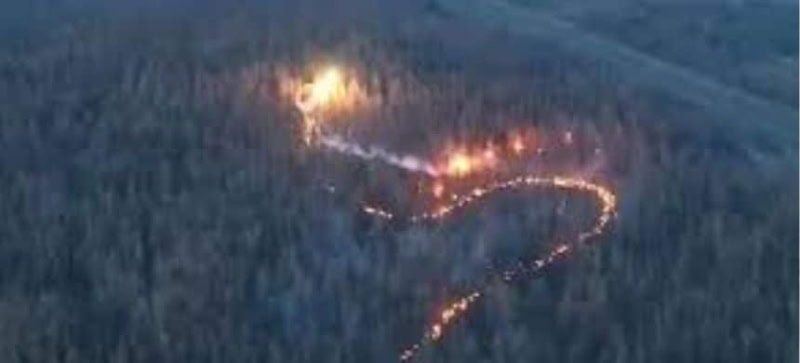Ukraine is utilizing “dragon drones” in its fight against Russian forces, employing these drones to drop molten thermite on Russian-held positions. Videos shared by Ukraine’s Defense Ministry show the drones releasing streams of fire resembling the breath of a mythical dragon, giving them their name. Thermite, a mix of aluminum powder and iron oxide, burns at temperatures as high as 4,000°F (2,200°C), destroying trees and vegetation while posing a deadly threat to enemy troops.
This fiery weapon has historical roots, with thermite first discovered in the 1890s and later used in both World Wars to disable military equipment and as incendiary bombs. The drones’ modern use of thermite brings a new, innovative angle to an old weapon. While the physical damage is significant, defense experts believe the psychological effect on Russian forces is equally impactful.
Read more: Dozens Dead in Russian Attack on Ukrainian Military Training Facility
Ukraine’s 60th Mechanized Brigade hailed the precision and effectiveness of these drones, calling them “wings of vengeance.” The brigade’s social media post emphasized the drones’ ability to burn enemy positions with unmatched accuracy. They highlighted that the psychological fear of drone attacks may be as important as their physical destruction.
Despite its power, thermite use is limited, according to defense analysts. The Ukrainian army does not have an extensive supply of thermite drones, making this a niche capability rather than a widespread tactic. Nonetheless, the fear it creates among Russian troops adds a new dimension to Ukraine’s drone warfare strategy.
Thermite’s devastating effects on the battlefield have been well-documented, with the weapon easily burning through metal and other materials. Although it is not banned in military combat under international law, its use against civilians is prohibited due to the severe burns it can inflict. Both Ukraine and Russia have faced accusations of using incendiary weapons in the conflict, adding another layer of brutality to the war.









